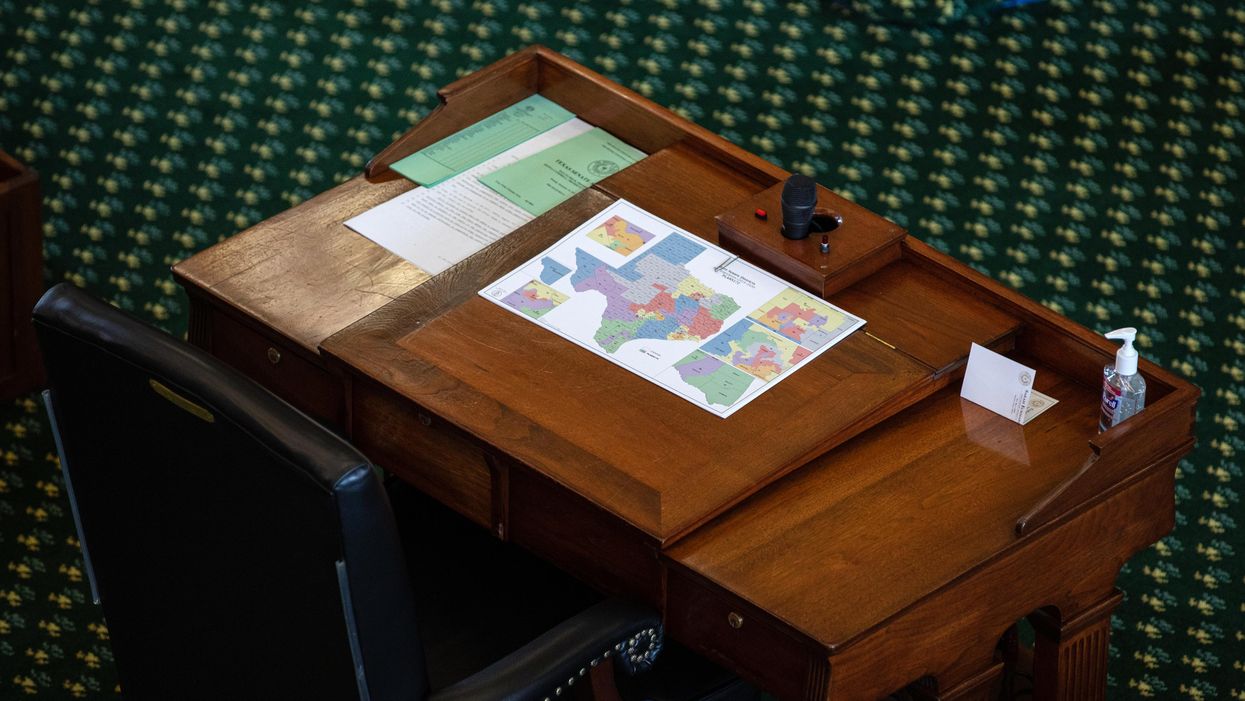Ochoa is communications director of More Equitable Democracy, which advocates for an array of democracy reforms.
The United States is a place where fair representation can lead to greater prosperity for each of us. But our nation is facing structural challenges to fair representation under redistricting. These challenges are hitting communities of color particularly hard.
Communities of color are losing their voting power under redistricting. Communities are often "packed" and "cracked" in the mapmaking process, when extremists, cheaters and greedy corporations use them to divide communities. These tactics usually benefit the two dominant political parties.
The United States can turn a new page for all of us. We should replace the winner-take-all electoral system. Its antiquated redistricting requirements are doing us no favors. A proportional representation system, specifically a system known as single transferable vote, would end the need for redistricting altogether. And communities across the United States could finally have fair representation for everyone.
How do winner-take-all systems diminish voting power through redistricting?
Winner-take-all systems rely on racial and political gerrymandering. Map drawers will often pack or crack communities of color under redistricting. This process favors particular groups or political parties. The process does not favor people.
Packing involves placing district lines around majority-minority areas. This practice segregates communities into as few districts as possible. It is also the most common way for racial minorities to gain representation under WTA.
Cracking occurs when minority communities are divided across multiple districts. Cracked populations are less likely to elect candidates of their choice.
Racial discrimination during the redistricting process is illegal. But communities can still be hurt during the process. In the 2019 decision Rucho v. Common Cause, the Supreme Court ruled that partisan gerrymandering is non-justiciable. In an age when political affiliation is a proxy for race, the ramifications can be dire for communities of color.
Organizations and elected officials are saying the redistricting process is a problem
Kathy Jones, president of the League of Women Voters of Alabama, commented:
"In less than a week, Alabama's Legislature passed bills to define state House, Senate, congressional, and board of Education voting district maps for the next 10 years. These maps were delivered by the reapportionment committee's lawyers only a day before the reapportionment committee met on Tuesday, October 26. The detailed maps were never reviewed by the Alabama legislators, and efforts to make amendments to address concerns were repeatedly rebuffed by the reapportionment committee chairs."
A civil rights group in Texas is suing the state for similar reasons. The Democracy Docket suggests the Republican-controlled Legislature is using race as a factor when drawing new district maps. The civil rights group argues that the Legislature is diluting the voting power of Texans of color.
The story is the same in Georgia. The Georgia Democratic Party suggests House Republicans are debating maps that diminish voting power.
Meanwhile, Wisconsin state Sen. Lena Taylor stated that redistricting maps are flawed and she will not support any district maps before the chamber. In her view, the maps do not meet the requirements of the Voting Rights Act and do not provide minorities with adequate representation. She goes on to explain how cracking and packing dilute the voting power of her community.
Unfair redistricting is also happening in places like Washington, where Republicans and Democrats cannot agree on fair maps.
The Crosscut reports that Washington's bipartisan redistricting commission could not agree on fair redistricting maps. The group missed the deadline for approval on Nov. 16 so the maps are now headed to the state Supreme Court.
The manipulation of winner-take-all electoral systems is very real. It denies fair representation for all communities across the United States.
How can we create fair representation without the need for redistricting?
We are at a pivotal moment in our collective history. We must think outside the box when it comes to how we create fair representation for our communities. We must adopt proportional representation in the form of a single transferable vote system, which would end gerrymandering and racially segregated districts.
There are three important things to understand about STV:
- STV is resistant to gerrymandering.
- STV requires large, multimember districts, which would ensure fair geographic, gender, racial, and ethnic representation.
- STV allocates the number of seats in proportion to the percentage of votes won.
STV resists gerrymandering while producing fair representation. Drawing single-member districts that benefit political parties or create segregated districts is easy. But drawing multimember districts that achieve the same results is impossible.
Large, multimember districts also eliminate packing and cracking. Under STV rules, voters of color can live anywhere within the district. They can also vote for candidates of choice and have a reasonable chance of electing them. This is because STV awards seats in proportion to the votes won.
Action must be taken
No idea or system is without its flaws. Some systems have many flaws while others get us closer to fair representation.
Activists, organizers and coalitions must adopt alternatives to WTA. We must adopt proportional representation wherever possible. No community should worry about the high-stakes game of political or racial gerrymandering. They especially shouldn't worry every 10 years.
Communities can adopt proportional representation systems at the local, state and federal levels. There are no rules that dictate which kinds of elections communities use to elect legislative representatives. Organizing, educating and campaigning for fair representation must become the norm if we're going to elude the inequitable, antiquated redistricting process.
Together, we can implement new electoral systems that create fair representation for everyone. We make the future. And when we are all in for fair representation, we will make the best choices for our communities and our nation.



















Trump & Hegseth gave Mark Kelly a huge 2028 gift